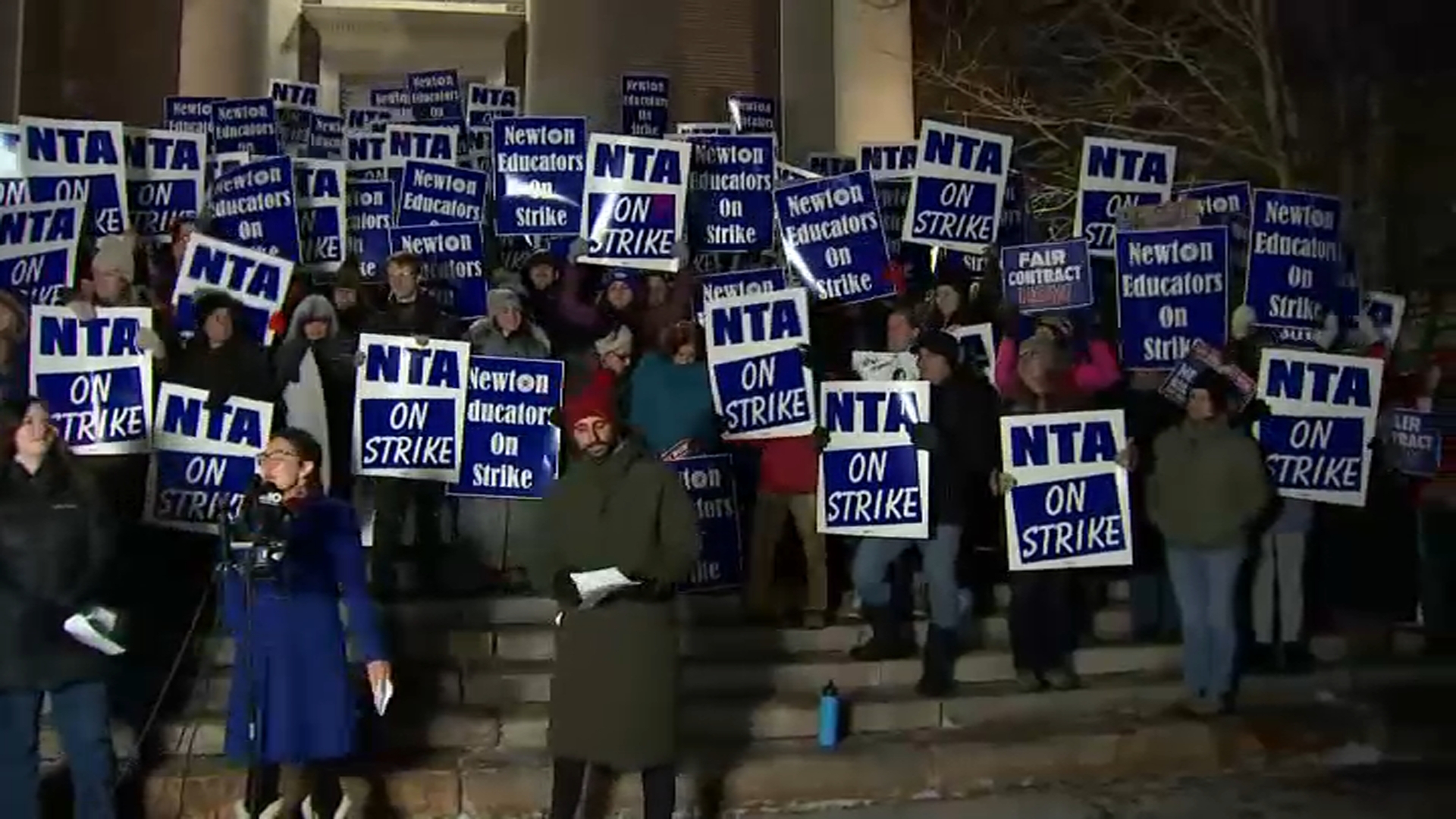The Massachusetts Ballot Commission held a hearing Thursday on two challenges to former President Donald Trump's eligibility on the ballot for the upcoming elections.
Trump is among seven Republican candidates set to appear on the March 5 presidential primary ballot in Massachusetts, but objections were filed this month by Free Speech for People and Massachusetts-based civil rights firm Lichten & Liss-Riordan.
WATCH ANYTIME FOR FREE
Stream NBC10 Boston news for free, 24/7, wherever you are. |
The pair are trying to remove Trump from the ballot for the state's primary and the general election. They believe he "engaged in rebellion and insurrection against the Constitution of the United States" during the Jan. 6, 2021, U.S. Capitol riot.
At Thursday's hearing in a conference room at a state building in downtown Boston, the ballot commission focused on whether it has jurisdiction to keep Trump off the ballot based on the objections from a group of residents including former Boston Mayor Kim Janey.
Get updates on what's happening in Boston to your inbox. Sign up for our News Headlines newsletter.
"We believe that Mr. Trump's candidacy for this office and placement on the Massachusetts ballot violates the Constitution," said attorney Shannon Liss-Riordan, a former candidate for the Democratic nomination to be Massachusetts' attorney general and a U.S. senator.
Trump lawyer Marc Salinas argued that the objectors' argument is based on the process for a candidate being placed on the ballot via nomination or nomination papers, whereas Trump was placed on the ballot at the request of Massachusetts Republican Party, which also filed to dismiss the objections.
"There is nothing in the case law or the statutes … that says qualification to be on the ballot is a precondition to appear on the ballot," Salinas said, going on to give an example illustrating his point:
If the Massachusetts Republican Party so chose to put somebody on the ballot who is clearly not qualified — and I want to use a very non-controversial type of example, someone who is 12 years old, they're not old enough to hold the office — the position is that, as absurd as it might seem, is that once the Republican Party asks that he, under the statute, be placed on the ballot, the candidate must appear on the ballot. Now, if and when that candidate is or is not nominated, the next question is, would that person ever be able to take the oath of office? Well, perhaps not. But … we're not there yet.
The commission's chairman, retired judge Francis Crimmins Jr., gave lawyers until the end of the day Friday to lodge responses to the latest filings. The panel must render a decision by 5 p.m. on Monday, Jan. 29.
Part of the 14th Amendment to the U.S. Constitution bars people who "engaged in insurrection" from holding federal office, and the Civil War-era legislation has been invoked in two states to keep Trump from appearing on upcoming 2024 ballots, Colorado and Maine, though both rulings are on hold while Trump appeals to the Supreme Court.
Unlike his counterpart in Maine, Massachusetts Secretary of State Bill Galvin didn't keep Trump off the state's GOP primary ballot, but he has said he is familiar with the arguments.
"We're not going to deprive voters of the right to cast a ballot. A lot of people have said this is about defending democracy. And as a citizen, I might agree with that. But I think the best way to defend democracy is to participate in democracy. And that opportunity's here for everyone in Massachusetts," he said Jan. 2, while setting the order the names will appear on the ballot.
The State House News Service contributed to this report.



